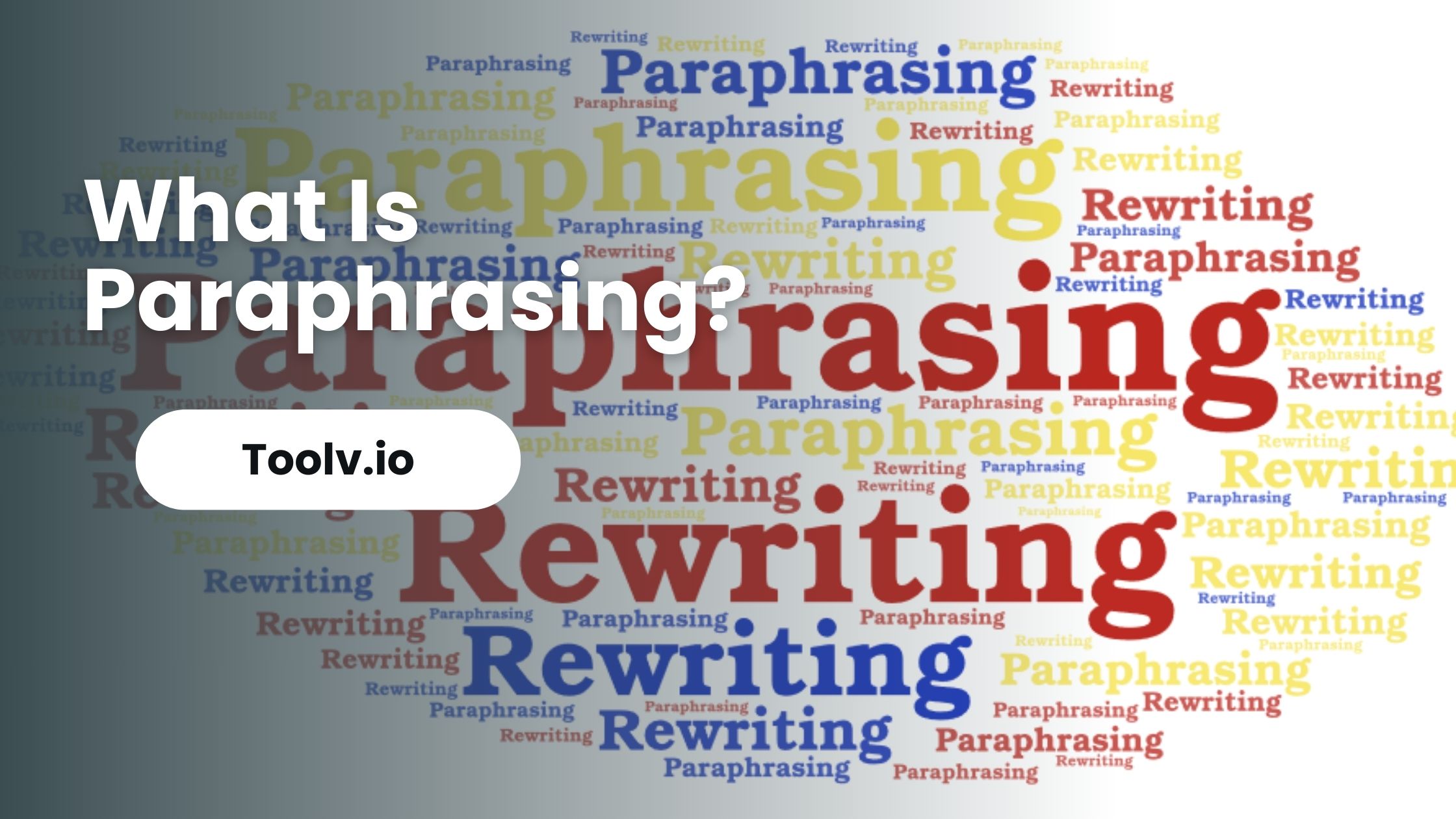What Does Paraphrasing Mean?

Paraphrasing means taking someone else’s ideas and putting them into your own words. It’s like re-telling a story in your own way, but keeping the main ideas the same.
In this article, we will discuss how to paraphrase effectively. We’ll explore tips and techniques to help you restate ideas in your own words while maintaining the original message.
What Does Paraphrasing Mean?
Paraphrasing means rewriting something using your own words. When you paraphrase, you take information from a source and restate it in your own style.
You should not just change a few words. Paraphrasing means interpreting the information, understanding it fully, and expressing it in your unique voice.
Paraphrasing is different from direct quoting when you copy words verbatim. With paraphrasing, you rewrite the ideas and details into your own unique words and sentences. It should sound like you, not the original source.
The key point is that paraphrasing expresses the same essential information as the original but in a fresh linguistic form. This allows you to reshape what others have said or written and synthesize ideas while citing sources ethically.
What Is an Example of a Paraphrasing?
Here is a simple example of paraphrasing:
Original source: “The population of African lions has decreased by 43% in the last two decades due to habitat loss and prey scarcity.”
Paraphrased version: According to a wildlife report, the number of lions living in Africa has gone down by 43 percent over the last twenty years. The main causes are that lions are losing their natural habitats and there are fewer animals for them to hunt.
In this example, the paraphrased sentence expresses the same essential information as the original source but uses different vocabulary and sentence construction. Some key details stay the same, like the 43% statistic. However, the overall style and language are unique to the writer paraphrasing the content.
The key things to note are restating the information in your own words and citing the source properly. This allows the writer to incorporate research while reshaping the details linguistically.
When done correctly, paraphrasing demonstrates understanding and enriches writing through ethical source usage and citation.

Why Is It Called Paraphrasing?
Paraphrasing gets its name from the Greek roots “para” and “phrase”.
“Para” means alongside or beyond. “Phrase” means a small group of words or a style of expression.
So paraphrasing literally means “expressing alongside” using different wording.
When you paraphrase, you take information from a source and express it alongside the original, but using your own unique phrasing and words. You restate the original details and ideas, but in a fresh stylistic manner in your writing.
So paraphrasing allows you to go beyond directly quoting and reshape what others have said or written into your own linguistic style. The key is citing sources properly while rephrasing the concepts and details in your own voice.
What Is a Paraphrase in Easy English?
A paraphrase means rewriting something using your own words. You take information from somewhere else and restate it.
When you paraphrase, you read something, understand it fully, and express it again in your own way. You keep the same meaning but use your own style.
Paraphrasing is different from quoting directly. With paraphrasing, you rewrite ideas and details in your own voice instead of copying words exactly.
Some key tips are:
- Don’t just change some words
- Restate everything in your own words
- Cite the original source properly
Proper paraphrasing shows comprehension and allows you to reshape language from sources. It lets you share information ethically using your unique expression.
FAQs
What is Paraphrasing?
Paraphrasing is the process of rewording or rephrasing a piece of text or speech in your own words while retaining the original meaning. It’s often used to simplify or clarify the original text or to avoid plagiarism.
How is Paraphrasing Different from Summarizing?
While paraphrasing involves rewriting a text with different words without changing its meaning, summarizing means condensing the text to highlight only the main points. Paraphrasing usually keeps the same length as the original text, whereas summarizing makes it significantly shorter.
Why is Paraphrasing Important?
Paraphrasing is important because it demonstrates an understanding of the original text, allows for the integration of information into writing or research while avoiding plagiarism, and helps to clarify complex ideas for better comprehension.
Can Paraphrasing Be Considered Plagiarism?
Paraphrasing can be considered plagiarism if the original source is not properly credited or if the paraphrased text is too similar to the original. Proper paraphrasing involves significantly altering the structure and wording while maintaining the original meaning and always requires citing the source.
Conclusion
Paraphrasing is restating source information in your own words rather than directly quoting. It demonstrates comprehension while allowing you to rewrite details and ideas from research in your unique voice.
Online paraphrasing tools like Toolv.io rewrite content automatically to jumpstart the paraphrasing process. But remember, you need to check that the core meaning hasn’t changed.
For more information about how to convert text to speech, click our how to convert text to speech post. For free text to speech tools click on our free text to speech tool post.





